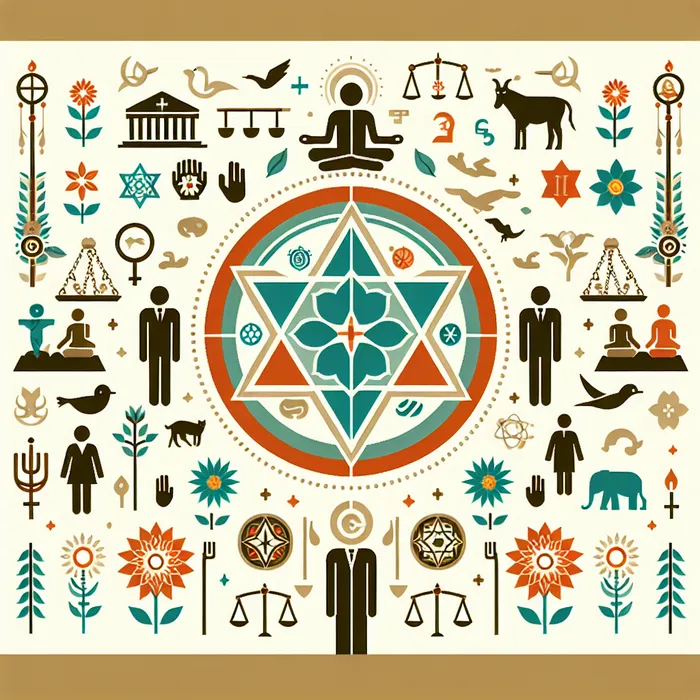How Justice Towards All Life and Nature Can Shape Our Future: A Bahá'í Perspective
COMMENT

As we observe the International Day for the Preservation of the Ozone Layer, humanity needs a shift from materialistic views of environmental challenges to a moral and ethical perspective that fosters justice and sustainability.
Image: RON AI/Independent Media
‘International Day for the Preservation of the Ozone Layer’ – observed annually on 16 September – is a reminder of the urgent need for a more appropriate use of our natural world, and its protection and preservation.
The current trend, focusing mainly on the material aspects of environmental challenges – such as the depletion of the ozone layer, climate change, soil erosion, plastic pollution, and water shortages – while ignoring its moral and ethical dimensions, is counterproductive to humanity’s long-term well-being. Rather than exploiting the earth's resources without due regard for their sustainability, should we not be asking how to live with an ethic of respect, care, and justice towards all life and nature?
According to a statement from the Bahá'í International Community, a “fundamental component of resolving the climate change challenge will be the cultivation of values, attitudes and skills that give rise to just and sustainable patterns of human interaction with the environment,” and, “As consciousness of the oneness of humankind increases, so too does the recognition that the wealth and wonders of the earth are the common heritage of all people, who deserve just and equitable access to its resources”.
Considering that local, national, and international communities are very much linked through the environment, the need for international cooperation to protect the environment cannot be over-emphasised.
There will always be a need for material resources to sustain civilization. As we learn how best to use the earth’s raw materials for the advancement of civilization, we must be conscious of our attitudes towards Mother Earth – the source of our wealth and sustenance.
The current systems, based mainly on materialistic standards and values, have not been able to protect the environment from ruinous damage. There is a need for dynamic coherence between the material, value-based, and the spiritual dimensions of sustainable consumption and production. Similarly, such coherence needs to be applied in the exploring and implementing of not only the policy and technical aspects, but the values that influence attitudes and transform behaviours.
To have the opportunity for everyone to realise their full potential is a basic human right, and all should be concerned with ensuring the same for others. “The shift to sustainable modes of production and consumption is a further expression of this principle: put simply, to consume more than one’s fair share is to deplete the resources needed by others”, says the Bahá'í International Community .
The extremes of wealth and poverty, with their clearly adverse impact on the world’s natural resources, must be addressed. “Wealth”, according to the Bahá'í International Community, “needs to be acquired and expended by nations in a way that enables all the people of the world to prosper. Structures and systems that permit a few to have inordinate riches while the masses remain impoverished must be replaced by arrangements that foster the generation of wealth in a way that promotes justice”.
Furthermore, there is a dire need for a world federal system to ensure justice in terms of economic, material and social life for all peoples, and reverence towards the earth.
For feedback please contact: tshwane@bahai.org.za; or call 076 582 3879.
Websites: www.bahai.org, www.bahai.org.za